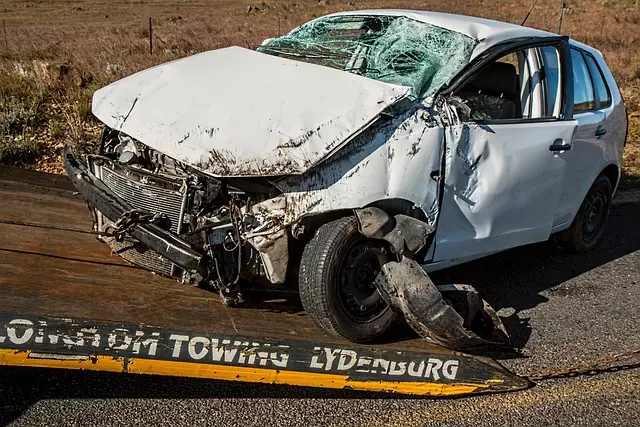Rideshare safety litigation is a complex field where victims seek justice for accidents causing physical, emotional, and financial hardships. A specialized Staten Island Brain Injury Lawyer navigates legal complexities, investigates accidents, gathers evidence, and protects clients' rights under the law. These lawyers are crucial due to their knowledge of local laws, driver liability, insurance coverage, and passenger rights. They establish liability among rideshare companies, drivers, and sometimes passengers, ensuring victims receive fair compensation for brain injuries or other damages through legal action. By emphasizing robust safety features within apps, including advanced technology and integrated emergency protocols, rideshare companies can reduce risks and enhance passenger security, upholding their ethical responsibilities towards communities.
“Rideshare Safety Litigation: Ensuring Secure Trips and Justice for Victims is a comprehensive guide to understanding legal aspects of ride-sharing accidents. With an increasing reliance on services like Uber and Lyft, exploring common causes of crashes and injuries is vital. This article delves into the role of Staten Island Brain Injury Lawyers, navigating liability issues, and rights for passengers. It also highlights preventive measures and industry responsibilities, offering insights into making ridesharing safer.”
- Understanding Rideshare Safety Litigation: A Legal Perspective
- Common Causes of Rideshare Accidents and Injuries
- The Role of Staten Island Brain Injury Lawyers in Ride-Sharing Cases
- Navigating Liability: Who's Responsible in Rideshare Crashes?
- Rights and Remedies for Passengers Involved in Rideshare Accidents
- Preventive Measures and Industry Responsibilities for Safer Ridesharing
Understanding Rideshare Safety Litigation: A Legal Perspective

Rideshare Safety Litigation is a complex legal landscape where victims of accidents involving ride-hailing services seek justice and accountability. This type of litigation often arises from incidents resulting in personal injuries, including brain injuries, as seen in cases handled by Staten Island Brain Injury Lawyers. Such lawsuits aim to compensate victims for their physical, emotional, and financial hardships while holding rideshare companies and drivers accountable for negligence or liability.
From a legal perspective, these cases involve scrutinizing safety protocols, driver qualifications, and the responsibilities of both the driver and the rideshare company. This includes analyzing factors like driver training, background checks, vehicle maintenance, and the presence of safety features. A Staten Island Brain Injury Lawyer plays a crucial role in navigating this legal maze by investigating accidents, gathering evidence, and ensuring that clients’ rights are protected under the law.
Common Causes of Rideshare Accidents and Injuries

Rideshare accidents can result from a variety of factors, leading to different types of injuries for passengers and bystanders alike. Common causes include driver distraction, such as using a mobile device while behind the wheel or adjusting navigation settings, which can significantly impact reaction times. Speeding and reckless driving behavior also contribute, especially in densely populated areas like Staten Island where traffic congestion is prevalent.
In addition, mechanical failures or poor vehicle maintenance play a role, as faulty brakes, tires, or steering systems can cause loss of control. Moreover, fatigued drivers may experience slowed reaction times and decreased awareness, increasing the risk of accidents. For passengers, especially those with pre-existing conditions, sudden stops or sharp turns can lead to severe injuries, including brain injuries. A Staten Island Brain Injury Lawyer can provide guidance for victims seeking compensation in such cases.
The Role of Staten Island Brain Injury Lawyers in Ride-Sharing Cases

When it comes to rideshare safety litigation, the role of a Staten Island Brain Injury Lawyer is paramount. These legal experts are well-versed in navigating complex personal injury cases involving ride-sharing services. They possess a deep understanding of local laws and regulations pertaining to driver liability, insurance coverage, and passenger rights, which are crucial aspects in these types of claims.
Staten Island Brain Injury Lawyers play a critical role in ensuring justice for clients who have suffered brain injuries or other severe damages due to accidents while using ride-sharing apps. They investigate incidents, gather evidence, and consult with medical professionals to determine liability and secure the maximum compensation possible. Their expertise helps protect the rights of victims and hold accountable those responsible for their injuries.
Navigating Liability: Who's Responsible in Rideshare Crashes?

In rideshare accidents, determining liability can be complex due to the involvement of multiple entities—the rideshare company, drivers, and sometimes even passengers. When a crash occurs, it’s not always clear who is at fault. For example, in New York City, including areas like Staten Island, where brain injury cases are not uncommon, a skilled Staten Island Brain Injury Lawyer would argue that liability often falls on a combination of these parties.
If a driver is negligent in their operation of the vehicle—speeding, running red lights, or distracted driving—they are primarily responsible for any resulting injuries. However, the rideshare company may also be held liable if they failed to conduct proper background checks, provide adequate training, or maintain their vehicles. Understanding these nuances is crucial for victims seeking justice and compensation for their brain injuries through litigation.
Rights and Remedies for Passengers Involved in Rideshare Accidents

When involved in a rideshare accident, passengers have specific rights and remedies available to them. In New York, including areas like Staten Island, brain injury lawyers specializing in rideshare litigation can guide victims through this complex process. These attorneys help ensure that affected individuals receive fair compensation for their injuries, medical expenses, and other associated damages.
Passengers injured in such accidents may be entitled to seek reimbursement for medical bills, lost wages, pain and suffering, and more. They can file a claim against the rideshare company or take legal action if negligence on the part of the driver is proven. A skilled Staten Island brain injury lawyer can navigate the legal system, negotiate with insurance companies, and advocate for the best possible outcome for their client.
Preventive Measures and Industry Responsibilities for Safer Ridesharing

Rideshare companies and drivers have a shared responsibility to ensure safer operations, which is crucial given the growing popularity of ridesharing services. To enhance safety, both parties must implement preventive measures that go beyond basic background checks and driver training. This includes utilizing advanced technology such as vehicle tracking systems, real-time monitoring of driver behavior, and integrating emergency response protocols for quick incident management.
For instance, a Staten Island Brain Injury Lawyer might highlight the significance of implementing robust safety features within the app itself, like driver verification mechanisms during each ride, automated reporting of suspicious activities or emergencies, and immediate dispatch of medical aid in case of accidents. By taking these proactive steps, rideshare companies can contribute significantly to reducing risks and ensuring passenger security, thereby upholding their ethical responsibilities towards communities they serve.
Rideshare safety litigation is a complex field, demanding careful navigation through legal frameworks and varying liability rules. As discussed, understanding the common causes of accidents and injuries is crucial for both riders and industry players. Engaging the expertise of a skilled Staten Island Brain Injury Lawyer can significantly shape the outcomes of ride-sharing cases, ensuring passengers’ rights and remedies are protected. Ultimately, industry responsibilities for safer ridesharing lie in adopting preventive measures, enhancing accountability, and fostering a culture of safety to mitigate risks and protect all users.
